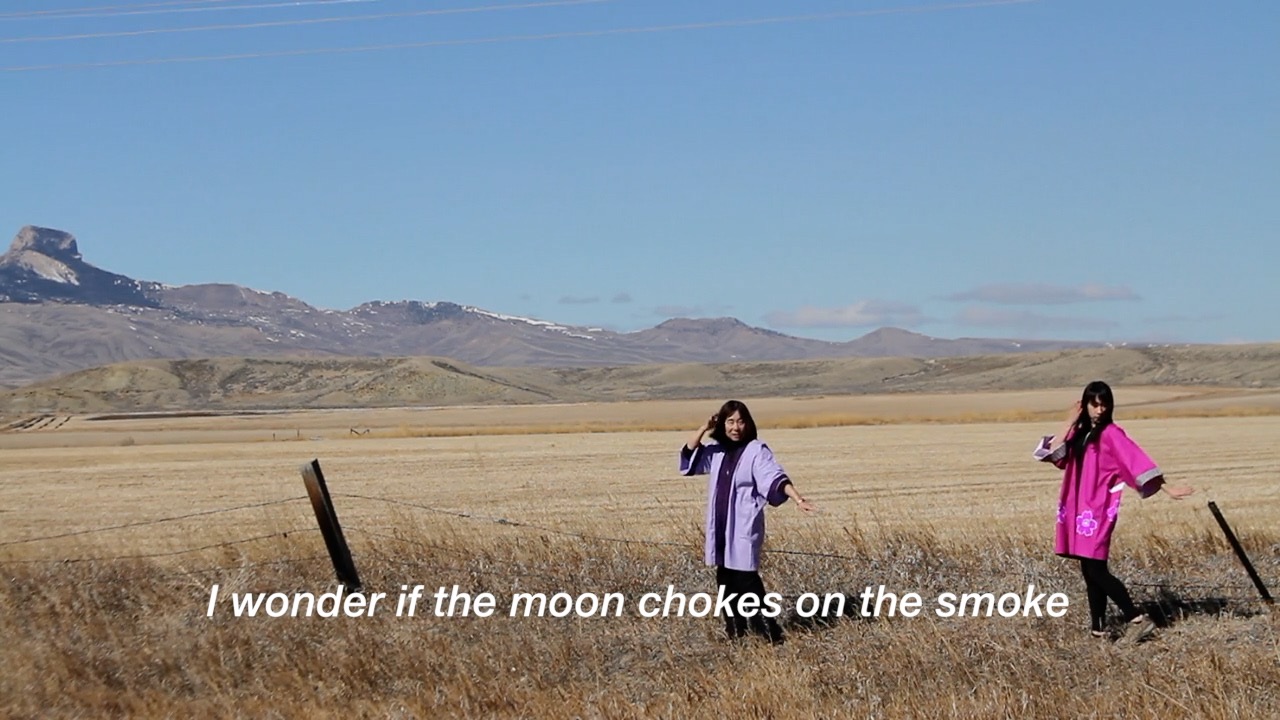Heart Mountain

Heart Mountain
2017
Three-channel video installation, 3:21 minutes
The artist and her mother repurpose a traditional Japanese Bon Odori Festival dance as an act of remembrance at the Heart Mountain War Relocation Center in Wyoming--a Japanese American incarceration camp where the artist’s maternal grandmother was detained from 1942-1945. Like the 120,000 people of Japanese descent living on the West Coast, Jeffereis’ grandmother, Wakako “Mary” Nishimoto, was forcibly removed from her home in eastern Washington and sent to an incarceration camp by order of the U.S. Government without due process of law under Executive Order 9066.
As part of the Jodo Shinshu Buddhist tradition in which Jeffereis was raised, Bon Odori dancing is performed by the community to honor the spirits of one’s ancestors. In the video, the artist and her mother dance to the folk song "Tankō Bushi" (“Coal Miner's Song”), with gestures that are adapted from the labor of mining. The performance of labor relates to the forced labor within the camps, as well as the perceived economic threat the Japanese American farming community posed to white farmers, a contributing factor that led to incarceration. While the dance is at once a tribute to the memory of those imprisoned, it also serves to bring visibility to an overlooked history.
Heart Mountain is one of a series of videos that reconsiders how to represent and memorialize the historical narrative of Japanese incarceration in the United States, Canada, and Mexico.